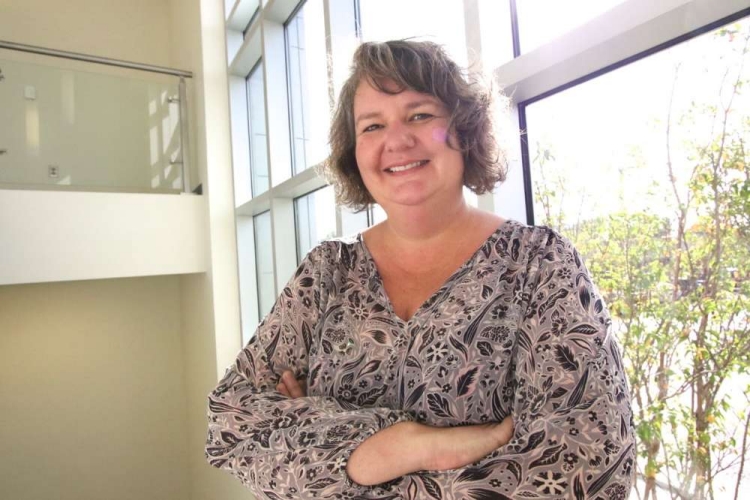Dr. Julie Miller-Cribbs Named a Women of the Year-Pinnacle Award Winner

YWCA Tulsa and the Mayor’s Commission on the Status of Women recently announced the ten women who will be honored for their efforts to create a better community. Our very own Dr. Julie Miller-Cribbs was selected because she embodies YWCAs mission to eliminate racism and empower women.
As the Director and Endowed Professor in Mental Health for OU’s Anne & Henry Zarrow School of Social Work, she is leading the way in education, research, and advocacy. Her research focuses on health disparities and the impact of trauma on health. These disparities impact women and children, racial minorities, persons living in poverty, and many other vulnerable populations whose high ACE (Adverse Childhood Experiences) scores from trauma result in dire health and mental health problems later in life. Since Oklahomans experience higher-than-national average of ACEs, Dr. Miller-Cribbs has helped form an interdisciplinary team that trains health professionals to help vulnerable patients understand how ACE impacts and improves their health.
Another of Dr. Miller-Cribbs’ recent initiatives is to use state-of-the-art simulation to train child welfare workers and create higher-quality training opportunities for Child Protective Services (CPS) staff. Thanks to her relationship with Haruv USA and experience in simulation, she has helped CPS workers become more confident in their abilities to directly discuss issues such as domestic violence, lack of caregiving/attachment with a child, and potential abuse with parents.
Her commitment to community medicine is part of her passion to ensure the social work values of dignity, respect, integrity, being non-judgmental, and honoring self-determination are part of the medical system as community medicine students prepare to work with vulnerable populations, including women.
On the education side, Dr. Miller-Cribbs advocates for women to receive equal compensation in the University system, serves as a mentor in the academic career for women, strives to hire, support, and promote diverse faculty, and seeks ways to reach out to diverse populations to recruit students. She has also taken purposeful risks to create ways for clinical renewable-term faculty to be promoted within the School of Social Work, to receive compensation for administrative responsibilities, to seek higher education through a doctorate degree, and to earn a sabbatical. Social Work is a female-dominated profession, and she strives to support leadership and mentorship among the women in the social work profession.
Dr. Miller-Cribbs is, without a doubt, a role model for faculty and staff in the School of Social Work and throughout the University of Oklahoma. She is a visionary leader, creating new positions, securing funding, and thinking of creative ways to reach more students and exponentially create more highly trained social workers to solve the myriad of problems in Oklahoma. She has mentored staff in teaching, classroom management, how to create a research agenda, how to find a voice of leadership, and in solving difficult administrative problems. She always has time for her staff, despite her busy life as the Director, is interested in each coworker’s life, and models effective leadership.
One of her biggest contributions is the expansion of the School of Social Work. The faculty in Tulsa has doubled under her leadership and advocacy, and we have more students than ever on the Tulsa and Norman campuses. We have new centers, new funding sources, new facilities, new policies that help career success, and overall a much higher level of support from leadership. Dr. Miller-Cribbs inspires faculty to see how their quality teaching multiplies by helping so many people develop skills to work with numerous clients in our state.
What makes Dr. Julie Miller-Cribbs so deserving of this recognition is that she sees — and thinks — beyond categories and divisions. When she interacts with a person, she doesn’t see gender, or race, or age, or whatever other characteristics that others might use to define (and potentially confine) an individual. Instead, she sees their intelligence, capacity, and perhaps most important, the potential of the person with whom she’s interacting.
Congratulations, Dr. Miller-Cribbs, on this much-deserved honor!

